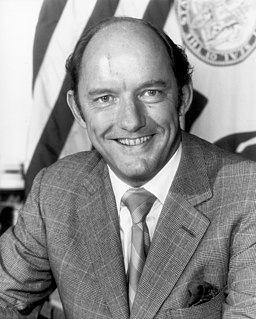A Quote by Thomas Paine
As property, honestly obtained, is best secured by an equality of rights, so ill-gotten property depends for protection on a monopoly of rights. He who has robbed another of his property, will next endeavor to disarm him of his rights, to secure that property; for when the robber becomes the legislator he believes himself secure.
Related Quotes
When the rich plunder the poor of his rights, it becomes an example for the poor to plunder the rich of his property, for the rights of the one are as much property to him as wealth is property to the other, and the little all is as dear as the much. It is only by setting out on just principles that men are trained to be just to each other; and it will always be found, that when the rich protect the rights of the poor, the poor will protect the property of the rich. But the guarantee, to be effectual, must be parliamentarily reciprocal.
It is not the right of property which is protected, but the right to property. Property, per se, has no rights; but the individual - the man - has three great rights, equally sacred from arbitrary interference: the right to his life, the right to his liberty, the right to his property The three rights are so bound together as to be essentially one right. To give a man his life but to deny him his liberty, is to take from him all that makes his life worth living. To give him his liberty but take from him the property which is the fruit and badge of his liberty is to still leave him a slave.
My position as regards the monied interests can be put in a few words. In every civilized society property rights must be carefully safeguarded; ordinarily and in the great majority of cases, human rights and property rights are fundamentally and in the long run, identical; but when it clearly appears that there is a real conflict between them, human rights must have the upper hand; for property belongs to man and not man to property.
The only proper, moral purpose of a government is to protect man's rights, which means: to protect him from physical violence - to protect his right to his own life, to his own liberty, to his own property and to the pursuit of his own happiness. Without property rights, no other rights are possible.
I typically don't use the distinction 'positive' and 'negative' liberty, because negative sounds bad and positive sounds good, and I don't think that the terminology ought to prejudice us one way or the other. So I think the more descriptive term is 'liberty rights' versus 'welfare rights'. So, liberty rights are freedom-of-action type rights, and welfare rights are rights-to-stuff, of various kinds...And, property rights are not rights-to-stuff. I think that's one of the key misunderstandings about property. Property rights are the rights to liberty within your jurisdiction.
In the latter sense, a man has a property in his opinions and the free communication of them. He has a property of peculiar value in his religious opinions, and in the profession and practice dictated by them. He has an equal property in the free use of his faculties and free choice of the objects on which to employ them. In a word, as a man is said to have a right to his property, he may be equally said to have a property in his rights.
It has been the fashion to speak of the conflict between human rights and property rights, and from this it has come to be widely believed that the use of private property is tainted with evil and should not be espoused by rational and civilized men... the only dependable foundation of personal liberty is the personal economic security of private property. The Good Society.
We hold that the ownership of private property is the right and privilege of every American citizen and is one of the foundation stones upon which this nation and its free enterprise system has been built and has prospered. We feel that private property rights and human rights are inseparable and indivisible. Only in those nations that guarantee the right of ownership of private property as basic and sacred under their law is there any recognition of human rights.

































